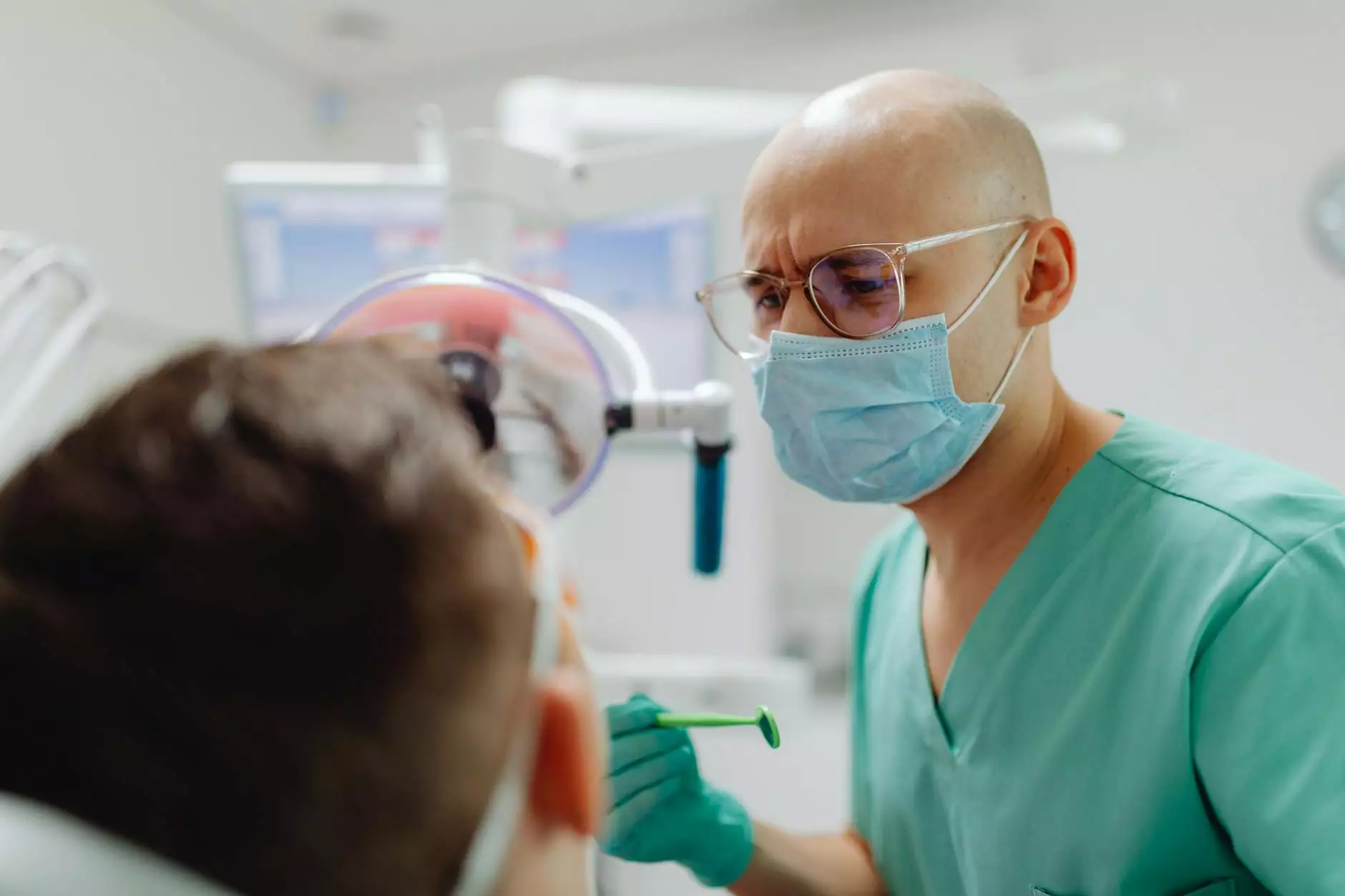The Impact of Mobile Laboratory Vehicles on Health & Medical Services

Mobile laboratory vehicles are transforming the way medical services and health evaluations are conducted. These innovative mobile solutions provide flexibility and efficiency that traditional laboratory setups simply cannot match. In this comprehensive article, we will delve into the myriad benefits of mobile laboratory vehicles, the technology behind them, their applications in various medical fields, and how companies like Odulair lead the way in this groundbreaking industry.
What is a Mobile Laboratory Vehicle?
A mobile laboratory vehicle is a specially designed vehicle equipped with advanced laboratory equipment and technology. These vehicles allow for the collection, processing, and analysis of biological samples in real-time, giving healthcare professionals immediate insights into patient health. The versatility of mobile laboratory vehicles makes them ideal for both urban and rural settings, particularly in emergency scenarios or areas with limited access to health facilities.
Key Features of Mobile Laboratory Vehicles
The features of mobile laboratory vehicles can vary widely depending on their intended use and design. Here are some of the most notable features:
- Advanced Equipment: Mobile laboratory vehicles are equipped with the latest technological advancements in laboratory equipment, ensuring accurate and rapid results.
- Sample Processing Facilities: Many of these vehicles include facilities for processing a variety of biological samples, from blood and urine to more specialized specimens.
- Climate Control: Maintaining optimal conditions for sample preservation is crucial. Mobile laboratories often come with sophisticated climate control systems.
- Accessibility: Designed to operate in diverse environments, mobile laboratory vehicles are accessible and operational in remote or disaster-stricken areas.
- Telemedicine Capabilities: Many vehicles are equipped with telemedicine technology, allowing healthcare professionals to consult with specialists remotely.
Advantages of Mobile Laboratory Vehicles
The integration of mobile laboratory vehicles into health services offers a multitude of advantages.
1. Increased Efficiency
The ability to conduct tests on-site significantly reduces the time it takes to diagnose and treat patients. This is particularly beneficial in emergencies where rapid responses can save lives.
2. Enhanced Patient Care
Mobile laboratories bring healthcare services closer to patients, particularly in underserved areas. This proximity to testing services leads to more timely diagnoses and treatment plans, ultimately improving overall patient outcomes.
3. Cost-Effectiveness
Setting up a traditional laboratory can be expensive, requiring extensive infrastructure and human resources. In contrast, a mobile laboratory vehicle can operate with lower set-up costs, making it a financially viable solution for many healthcare organizations.
4. Flexibility in Operations
Mobile laboratory vehicles can be dispatched as needed, allowing healthcare providers to respond quickly to outbreaks, natural disasters, or other public health emergencies. This flexibility is critical in mitigating health crises.
Applications of Mobile Laboratory Vehicles
The applications of mobile laboratory vehicles are vast and varied across different sectors of healthcare.
1. Infectious Disease Control
During outbreaks of diseases like COVID-19 or Ebola, mobile laboratory vehicles are essential for rapid testing and surveillance. They can be deployed to affected areas to provide immediate diagnostic services.
2. Emergency Medical Response
In disaster situations, mobile laboratory vehicles provide critical laboratory services needed to assess the health of affected populations and identify potential health threats.
3. Outreach and Community Health Programs
Mobile laboratories play a significant role in community outreach programs, allowing organizations to conduct free health screenings, vaccinations, and education campaigns in rural and low-income areas.
4. Research and Clinical Trials
For research organizations conducting clinical trials, mobile laboratory vehicles can be utilized to gather real-time data from diverse populations, making logistics easier and more efficient.
Technology Behind Mobile Laboratory Vehicles
Modern mobile laboratory vehicles boast an array of advanced technology that enhances their functionality.
1. Laboratory Automation
Many mobile labs are outfitted with automated systems that streamline processes like sample tracking and analysis, minimizing human error while increasing throughput.
2. Connectivity and Data Management
Wireless internet connectivity allows for the real-time transfer of data to medical databases and facilitates remote consultations with specialists.
3. Portable Diagnostic Equipment
Equipped with portable diagnostic tools, mobile laboratories can perform a range of tests quickly, including PCR testing, blood analysis, and pathogen identification.
Case Studies of Successful Mobile Laboratory Vehicle Implementations
Several organizations, including Odulair, have effectively deployed mobile laboratory vehicles, yielding impressive outcomes. Here are a few case studies:
1. Odulair's Mobile Health Clinic
Odulair has pioneered the use of mobile health clinics that incorporate laboratory capabilities, successfully reaching underserved populations across the nation. Their vehicles have enabled early detection of diseases that would otherwise remain unaddressed.
2. Community Testing During COVID-19
In response to the COVID-19 pandemic, various health authorities deployed mobile laboratory vehicles to conduct mass testing. The rapid deployment of mobile labs allowed for quicker identification of cases and effective contact tracing.
3. Mobile Labs in Rural Health Initiatives
In rural areas lacking access to healthcare, mobile laboratories have transformed healthcare delivery by providing regular screenings, vaccinations, and health education. These efforts have significantly improved community health metrics.
Challenges Facing Mobile Laboratory Vehicles
While mobile laboratory vehicles offer numerous benefits, they also face challenges that must be addressed.
1. Regulatory Compliance
Compliance with health regulations and safety standards is crucial. Navigating these requirements can be complex and requires continuous training and education for staff.
2. Transportation Logistics
Ensuring reliable transportation and maintenance of the vehicles in various environments can pose logistical challenges that healthcare providers must effectively manage.
3. Funding and Resource Allocation
Sustaining mobile laboratory operations requires consistent funding and resources. Many organizations depend on grants and community support to keep their services running.
The Future of Mobile Laboratory Vehicles in Healthcare
The future of mobile laboratory vehicles in healthcare looks bright, with several exciting trends on the horizon:
1. Integration of Artificial Intelligence
As technology advances, we anticipate increased integration of artificial intelligence in mobile labs, leading to even faster data analysis and smarter diagnostic capabilities.
2. Greater Focus on Preventative Care
Mobile laboratories will likely play a pivotal role in preventative health measures, allowing more frequent screenings and monitoring of chronic diseases in community settings.
3. Expansion into New Markets
With growing public health awareness, mobile laboratory vehicles are expected to expand into new markets, including schools, corporate wellness programs, and large public events.
Conclusion
In summary, mobile laboratory vehicles represent a significant advancement in the health and medical sectors. Their ability to provide rapid, accessible, and efficient laboratory services is revolutionizing patient care and public health initiatives. By prioritizing innovation and investing in these technologies, organizations like Odulair are not only enhancing healthcare delivery but are also setting new standards for what is possible in the field of medical services.









